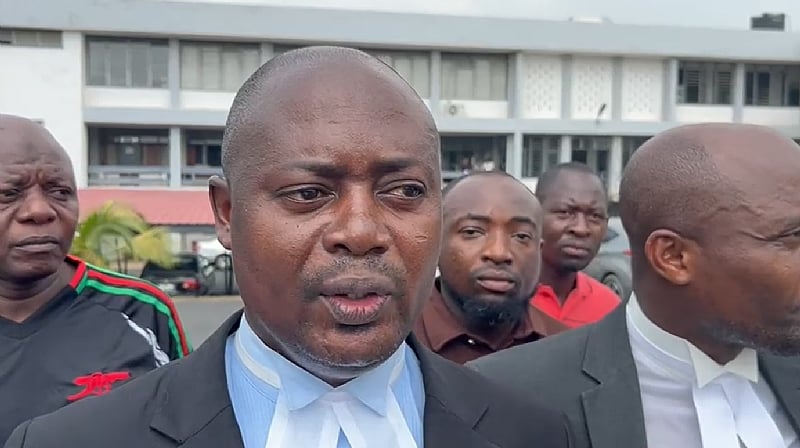The political landscape of Ghana’s Akwatia Constituency has been embroiled in legal wrangling following the December 7 parliamentary elections. The focal point of the contention is the election petition filed by the National Democratic Congress (NDC) candidate, Henry Boakye Yiadom, challenging the victory of the New Patriotic Party (NPP) candidate, Ernest Kumi. This legal challenge culminated in a dramatic court hearing on Sunday, January 5, 2020, at the Koforidua High Court, presided over by Justice Senyo Amedahe. The court’s decision, expected on Monday, January 6, has the potential to significantly impact the political representation of the Akwatia Constituency and set a precedent for future election disputes. The central issue revolves around an injunction obtained by the NDC, preventing Kumi from being sworn in as the Member of Parliament-elect.
The crux of the NDC’s petition alleges irregularities in the electoral process, which they claim affected the outcome of the election in the Akwatia Constituency. Their legal team successfully secured an injunction against the Electoral Commission, Ernest Kumi, and the Clerk of Parliament, effectively halting Kumi’s swearing-in ceremony scheduled to take place with other elected Members of Parliament. This injunction effectively placed the representation of the Akwatia Constituency in limbo, pending the court’s determination of the petition’s merits. The NDC’s action underscores the high stakes involved in the parliamentary election and the importance of ensuring a fair and transparent electoral process.
Responding to the NDC’s legal maneuver, the NPP’s legal team, led by Gary Nimako Marfo, launched a counter-offensive, arguing that the injunction was improperly filed and predicated on a flawed petition. Marfo asserted that the injunction application was procedurally deficient and that the underlying petition lacked legal basis. He contended that election results can only be challenged within 21 days of their official publication and gazetting, implying that the NDC’s petition might be time-barred. This argument raises critical questions about the timelines for challenging election results and the implications for the validity of the NDC’s legal challenge.
Marfo’s legal strategy aimed to not only lift the injunction preventing Kumi’s swearing-in but also to dismiss the entire petition, thereby clearing the path for Kumi to assume his parliamentary duties. He argued before Justice Amedahe that the injunction was not only procedurally flawed but also substantively unsound, lacking the necessary legal grounds to warrant such a drastic measure. The NPP’s legal team emphasized the importance of respecting the electoral process and the need for a swift resolution to the dispute to ensure the proper representation of the Akwatia Constituency in Parliament.
The differing perspectives of the two parties highlight the deep political divisions within the Akwatia Constituency and the significance of the court’s impending decision. Mintah Larbi, Director of Legal Affairs for the NDC in the Eastern Region, expressed confidence in the court’s ability to address what he termed an injustice stemming from the December 7 elections. This statement reflects the NDC’s belief that the electoral process in Akwatia was compromised and their hope that the court will rectify the perceived irregularities. Their anticipation of a favorable ruling underscores their commitment to pursuing legal avenues to ensure what they consider a fair outcome.
The Koforidua High Court’s judgment, scheduled for January 6, is highly anticipated. It holds the potential to shape the political future of the Akwatia Constituency and clarify the legal parameters for challenging election results. The court’s decision will determine whether Ernest Kumi will be allowed to take his seat in Parliament or whether the election process in Akwatia will be subjected to further scrutiny. The judgment will also provide valuable insight into the judiciary’s role in adjudicating election disputes and safeguarding the integrity of the democratic process in Ghana. The nation awaits the court’s verdict, which will undoubtedly have significant implications for both the Akwatia Constituency and the broader political landscape.


